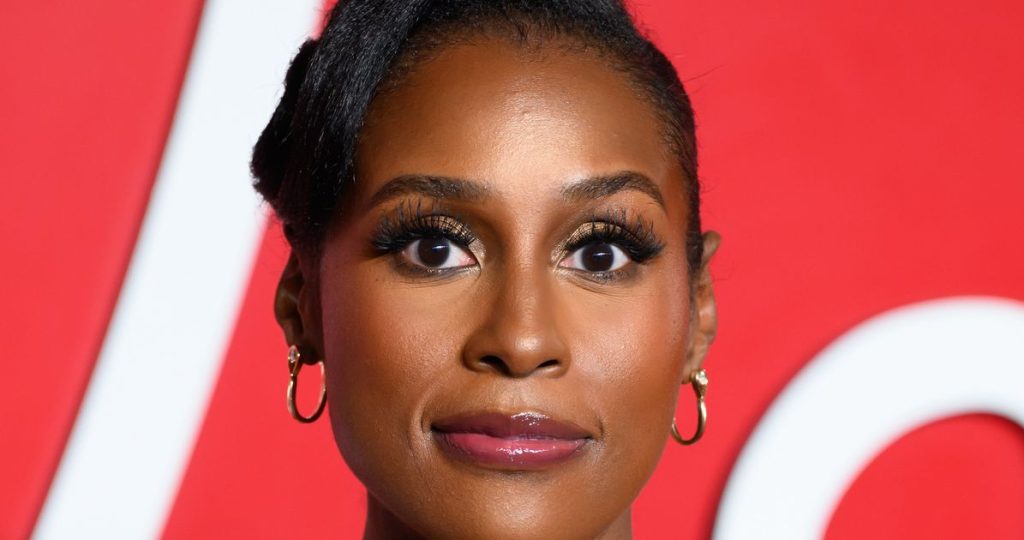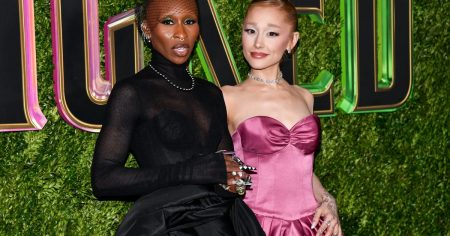Issa Rae Cancels Kennedy Center Show Amid Controversy Over Trump’s Overhaul
Actor and comedian Issa Rae made headlines recently when she announced the cancellation of her highly anticipated show at the Kennedy Center Concert Hall. The event, titled “An Evening With Issa Rae,” was set to take place on March 16 and had been billed as a special one-night-only experience, promising fans “a night of cozy vibes, big laughs, and all the nostalgic feels.” Despite the excitement surrounding the show—and the fact that tickets had sold out quickly—Rae decided to pull out of the engagement, citing concerns over recent changes at the Kennedy Center under President Donald Trump’s leadership. Her decision came just one week after tickets went on sale, leaving many fans disappointed but also sparked a broader conversation about the role of politics in cultural institutions.
A Stand for Values: Issa Rae Explains Her Decision
In a statement posted on Instagram, Rae expressed her gratitude to fans for their support but explained that she could no longer perform at the Kennedy Center due to what she perceived as an infringement on the institution’s values. She wrote, “Unfortunately, due to what I believe to be an infringement on the values of an institution that has faithfully celebrated artists of all backgrounds through all mediums, I’ve decided to cancel my appearance at this venue.” Rae, who is best known for her hit HBO show Insecure, emphasized her commitment to supporting spaces that uphold inclusivity and diversity. Her decision was met with widespread understanding and respect from fans, many of whom applauded her for taking a stand on principle. All tickets for the event were refunded, and Rae thanked those who had planned to attend for their understanding.
Trump’s Overhaul of the Kennedy Center Sparks Outrage
Rae’s decision to cancel her show comes on the heels of significant changes at the Kennedy Center, which have drawn backlash from the arts community. On Monday, Trump fired 18 board members of the Kennedy Center who had been appointed by former President Joe Biden. This move was followed by Trump announcing on Truth Social that he had been “unanimously” elected chair of the board. The overhaul has been described as unprecedented by the Kennedy Center itself, and it has led to a wave of resignations from high-profile board members. Among those who stepped down were television producer Shonda Rhimes and singer-songwriter Ben Folds, both of whom had been vocal about their opposition to Trump’s leadership and the direction he is taking the institution. The board is now composed entirely of appointees selected by Trump, raising concerns about the future of the Kennedy Center and its mission to celebrate a diverse range of artistic expression.
The Kennedy Center’s Legacy and Mission
The Kennedy Center, named after former President John F. Kennedy, has been a cornerstone of American cultural life since its opening in 1971. Located in Washington, D.C., it is one of the nation’s premier performing arts institutions, hosting a wide array of genres, from classical music and ballet to theater and contemporary performances. For decades, the Kennedy Center has been a symbol of artistic excellence and a platform for artists from all backgrounds to showcase their talents. Its board has historically been a bipartisan body, reflecting the importance of the arts in American society and the need for cultural institutions to remain independent of partisan politics. However, Trump’s recent actions have thrown the future of this legacy into question, with many fearing that the Kennedy Center’s commitment to diversity and inclusivity is under threat.
Trump’s Vision for the Kennedy Center and the Backlash
Trump has been vocal about his vision for the Kennedy Center, which he claims will reflect “the brightest STARS on its stage from all across our Nation.” However, his recent actions and statements have sparked outrage, particularly his criticism of the center’s past programming, including drag shows aimed at younger audiences. In a post on Truth Social last week, Trump wrote, “Just last year, the Kennedy Center featured Drag Shows specifically targeting our youth — THIS WILL STOP. The Kennedy Center is an American Jewel, and must reflect the brightest STARS on its stage from all across our Nation. For the Kennedy Center, THE BEST IS YET TO COME!” His comments have been interpreted by many as an attempt to impose his own cultural and political agenda on the institution, eroding its reputation as a neutral and inclusive space for the arts. The backlash against Trump’s overhaul has been swift and widespread, with many in the arts community expressing alarm at the potential politicization of the Kennedy Center and the impact it could have on its ability to support a diverse range of artists and performances.
The Broader Implications of the Controversy
Issa Rae’s cancellation of her show at the Kennedy Center has brought attention to a broader debate about the role of cultural institutions in contemporary America. At the heart of the issue is the question of whether institutions like the Kennedy Center should remain independent of partisan politics or if they should be subject to the whims of those in power. For many, the Kennedy Center represents a space where art transcends politics, bringing people together through shared experiences of beauty, creativity, and emotion. Trump’s actions, however, have raised fears that this space is being manipulated to serve a specific ideological agenda, one that excludes certain voices and perspectives. The resignation of board members like Shonda Rhimes and Ben Folds, as well as Rae’s decision to cancel her show, are powerful statements about the importance of standing up for the values of inclusivity and diversity that the Kennedy Center has long championed.
As this controversy unfolds, the arts community and the public at large will be watching closely to see how the Kennedy Center navigates this challenging new chapter. The center’s ability to maintain its independence and continue celebrating a wide range of artistic expression will be crucial in the months and years ahead. For now, Issa Rae’s decision to take a stand serves as a reminder of the power of individual action in defense of the values that make art and culture thrive.















